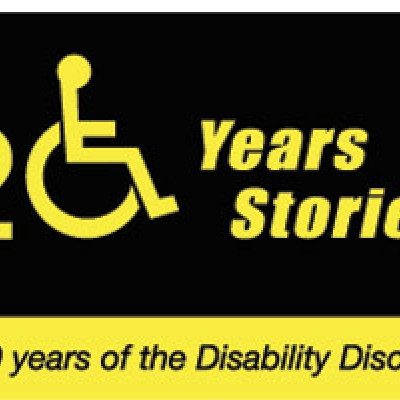Refine results
-
Employers19 February 2015Quick Guide
Religion
Discrimination in employment on the basis of religion occurs when someone does not experience equality of opportunity in employment because of their religion. This may include being refused a job, being dismissed from employment, being denied training opportunities or being harassed at work. Discrimination on the basis of religion alone is not unlawful under federal anti-discrimination law … -
Disability Rights24 June 2015Webpage
Willing to Work – Issues Papers
Back to Willing to Work main page New: Easy English versions of the Inquiry guides Willing to Work - Booklet 1: about the National Inquiry Willing to Work - Booklet 2: employment and older Australians Willing to Work - Booklet 3: employment and Australians with disability Willing to Work - Booklet 4: what you can do about employment discrimination Issues Paper: Employment discrimination… -
Employers18 February 2015Quick Guide
Reasonable Adjustments
Some people with disabilities may face barriers at work because of some feature of their work situation which could readily be altered. Making these changes is commonly referred to as ‘reasonable adjustments’. Employers can be required by law to make reasonable adjustments to the workplace. Failure to do so may be discrimination. Adjustments should respond to the particular needs of the… -
Employers18 February 2015Quick Guide
Gender Identity
The Sex Discrimination Act makes it unlawful to discriminate against a person because of their gender identity. There are some limited exemptions. Gender identity discrimination happens when a person is treated less favourably than another person in a similar situation because of that person’s gender-related identity, appearance, mannerisms or other gender-related characteristics of the… -
Employers18 February 2015Quick Guide
Contact Officer
Learn about the purpose, roles, and responsibilities of a contact officer in the workplace. -
Employers13 February 2015Quick Guide
Carers
Caring responsibilities can include caring for young children, for children or adults with disabilities, mental illness, chronic illness, or for older people. Many employees will have caring responsibilities at different times in their lives. Employers have an obligation to avoid discrimination against carers in some circumstances. Under the Sex Discrimination Act, it is against the law for … -
Employers18 February 2015Quick Guide
Languages
Treating someone differently because of the language that they speak may be against the law. Find out more in this quick guide for employers. -
Employers13 February 2015Quick Guide
Complaints – Internal Complaints Processes
Establishing a process to resolve complaints of discrimination and harassment can improve staff satisfaction and help avoid complaints to external agencies or other legal action. Under federal anti-discrimination laws, if an organisation argues that the organisation should not be held liable for any discrimination or harassment by one of its employees, the organisation will need to… -
Disability Rights12 January 2016Submission
Submission to the Senate Community Affairs Legislation Committee Inquiry into the Social Services Legislation Amendment Bill 2015
-
Disability Rights24 June 2015Webpage
Willing to Work – About the Inquiry
Back to Willing to Work main page About the Inquiry The National Inquiry examines practices, attitudes and Commonwealth laws that deny or diminish equal participation in employment of older Australians and Australians with disability; and makes recommendations as to Commonwealth laws that should be amended, or action that should be taken to address employment discrimination against older -
Children's Rights4 September 2013Submission
AHRC response to Working With Children Check
-
Rights and Freedoms18 May 2013Webpage
Freedom to believe and the freedom to manifest that belief
Article 18 of the ICCPR distinguishes between the freedom to hold a particular belief, and the freedom to manifest that belief in conduct. It is clear from the different focuses of paragraphs (2) and (3) of article 18 that the freedom to hold a belief is broader than the freedom to act upon it. Of course, persons who express religious opinions may also be protected under , which recognises… -
14 December 2012Book page
Voices of Australia: Activity sheet 4 - rightsED
It was a landmark for Australia - the first federal law to say that all people have the right to be treated fairly, regardless of their background, culture or colour. -
14 December 2012Book page
HREOC Website: National Inquiry into Children in Immigration Detention
Commissioners: DR SEV OZDOWSKI, Human Rights Commissioner MRS ROBIN SULLIVAN, Queensland Children's Commissioner PROFESSOR TRANG THOMAS, Professor of Psychology, Melbourne Institute of Technology MS VANESSA LESNIE, Secretary to the Inquiry -
Disability Rights9 April 2013Project

Twenty Years: Twenty Stories
Celebrating 20 years of the Disability Discrimination Act -
Disability Rights24 April 2014Project

Mobility Scooters in Registered Clubs
This paper aims to start a discussion about mobility scooters (scooters) and their use within and around Registered Clubs (the Clubs). It has been produced as part of a project initiated by a partnership between the RSL & Services Clubs and the Australian Human Rights Commission. -
Disability Rights24 June 2015Webpage
Willing to Work – Consultations
Back to Willing to Work main page Consultations Consultations have now been conducted in every capital city and some regional centres. The consultations are a critical part of understanding the key concerns and challenges, as well as identifying leading practices and effective strategies. The Inquiry is interested in hearing the views, experiences and ideas for change from as many people as … -
Disability Rights23 February 2016Webpage
D.D.A. Guide: FAQ on the National Relay Service
DDA Guide: Frequently asked questions: the National Relay Service What is the National Relay Service? The NRS is an Australian Government initiative. It provides phone service for people who are deaf, hearing-impaired or have complex communication needs. The NRS relay officer provides a link for the parties to the call and relays exactly what is said or typed. The NRS relay officer is… -
Disability Rights6 October 2016Opinion piece
The NDIS: delivering results, delivering equality and even delivering your coffee
Getting a morning coffee on the way to work is a ritual many of us take for granted. Not Jeremy, who is a young man with a communication disability. The thought of not only being able to order coffee, but run a business, was a pipe dream. Until the National Disability Insurance Scheme (NDIS) arrived in Lake Macquarie. The NDIS created an opportunity for Jeremy to start communicating for the… -
Disability Rights13 January 2016Opinion piece
Time to regulate housing accessibility
With the scale, complexity and massive costs of recent reforms in disability services and aged care, we need constant monitoring and patience as the changes are put into place. According to what I hear and see this is all happening pretty well, in general. There is however a big shortcoming, a gap that could undermine the potential success of both the NDIS and the Aged Care programs. Both of…
